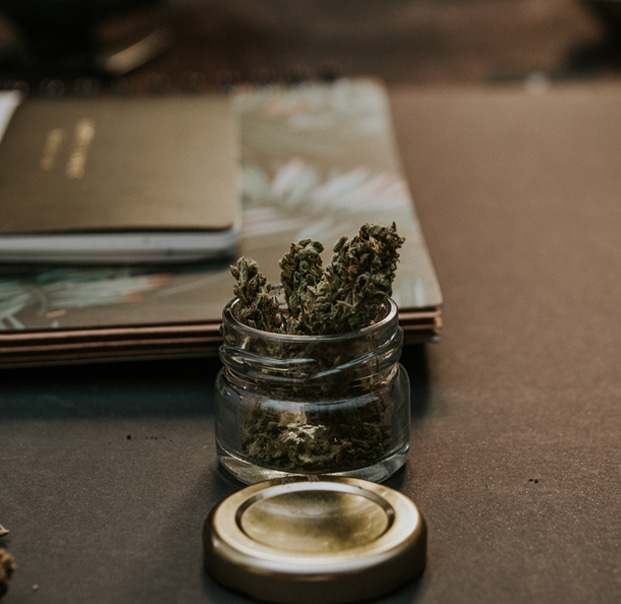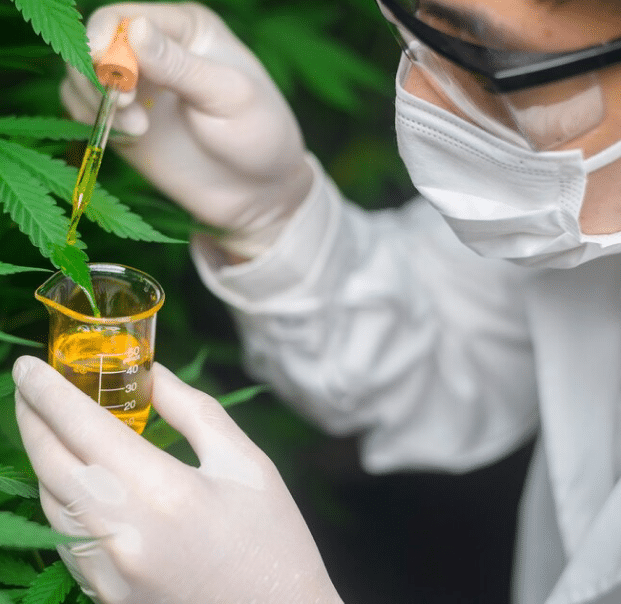Background
Navigating the cannabis market in New Jersey involves understanding a distinct set of regulations and procedures. This guide is designed to provide an in-depth overview of how to obtain a cannabis business license in New Jersey, tailored for entrepreneurs and businesses interested in entering this evolving industry.
Types of Cannabis Licenses in New Jersey
Cultivation Licenses
Permits for growing cannabis, with various tiers based on facility size and growing conditions.
Manufacturing Licenses
Allows for processing cannabis into various products, including extracts and edibles.
Retail Licenses
Enables the operation of dispensaries and delivery services for medical and/or recreational use.
Distribution Licenses
Required for transporting cannabis products between licensed facilities.
Cultivation Licenses
Class 1 license for cultivators. Must meet social equity and local compliance rules.
Back to the TopManufacturing Licenses
Class 2 license for manufacturers. Application includes site plan and extraction methods.
Back to the TopRetail Licenses
Class 5 dispensary license. Issued via CRC with equity prioritization.
Back to the TopDistribution Licenses
Class 4 distribution license. Allows third-party product transport.
Back to the TopHow to Obtain a Cannabis License in New Jersey?
Comprehensive Research and In-depth Preparation
Market Analysis
Understand New Jersey’s cannabis market dynamics by studying industry reports and analyzing market data before you apply for a cannabis business license or a conditional license application. Assess the size, growth trends, and competitive landscape to identify unique opportunities and potential challenges specific to the state. The market is projected to grow significantly, with recent sales figures surpassing $100 million.
Consumer Insights
License applicants must research to understand consumer preferences, purchasing habits, and demographic trends in New Jersey, whether they’re applying for a cannabis retailer license or any other license type. Use surveys, market studies, and existing consumer data to ensure your business model aligns with customer needs and expectations. This can involve investment in market research, potentially ranging from $5,000 to $15,000, depending on the depth of analysis.
Regulatory Proficiency
A license holder must stay informed about New Jersey Cannabis License regulations by regularly reviewing legislative updates and engaging with legal experts specializing in cannabis laws. Attend regulatory workshops and seminars to stay ahead of any changes that could impact your business. Allocate a budget for legal consultations, typically around $2,000 to $5,000.
Competitive Analysis
Evaluate the competitive landscape in New Jersey’s cannabis industry. Identify major players, their market strategies, and understand their strengths and weaknesses to position your business effectively.
Site Selection
Carefully choose your business location, considering New Jersey’s zoning laws, accessibility to your target market, and the potential impact on the local community. Assess factors like local demand, transportation links, and the proximity of competitors. Site selection studies can cost between $3,000 to $10,000.
Risk Assessment
Conduct a thorough risk assessment to identify financial, regulatory, and operational risks associated with entering New Jersey’s cannabis market. Develop strategies to mitigate these risks, such as insurance, diversification, and contingency planning. Insurance costs can vary, but budget at least $10,000 for comprehensive coverage.
Network Building
Build a strong network of industry contacts, advisors, and potential partners. Engage in New Jersey’s cannabis industry events, join relevant online forums, and actively participate in community discussions to establish valuable connections.
Develop a Solid Business Plan
Business Concept and Strategy
Create a detailed business plan that clearly defines your business concept, goals, and strategies. Describe your target market, product offerings, and how your business will meet customer needs in New Jersey’s cannabis market.
Financial Projections and Marketing
Include comprehensive financial projections, such as start-up costs, revenue streams, and profitability forecasts. Outline your marketing strategies, highlighting how you plan to attract and retain customers in a competitive market. Initial marketing budgets can range from $20,000 to $50,000.
Assemble the Necessary Documentation
Legal and Compliance Documents
Collect all necessary legal and compliance documents required for the cannabis license application in New Jersey. Ensure you have accurate and up-to-date business registration documents, tax records, ownership details, and operational plans.
Application Preparation
Prepare your application meticulously, ensuring that all required documentation is complete and adheres to the specific guidelines set by New Jersey’s Cannabis Regulatory Commission.
Submitting the Application
Application Process
Familiarize yourself with New Jersey’s specific procedures for submitting a cannabis license application. Ensure that your application is thorough and complies with all regulatory requirements. Application fees for different licenses can range from $5,000 to $20,000.
License Renewal and Agent Card Requirements
Understand the process for renewing your cannabis license in New Jersey. Be aware of the requirements for obtaining an agent card, if necessary, and comply with any employment limitations in the cannabis industry.
Payment and Fees
Note: Fee structures are subject to change. Consult the official New Jersey cannabis regulatory website for current fee schedules.
Application Fees
The application fee covers the initial costs associated with processing and reviewing cannabis business license submissions in New Jersey. These fees vary depending on the type of license and the size of the proposed operation. It’s essential to ensure all application materials are complete and accurate to avoid delays or additional costs.
License Fees
License fees are required to maintain compliance and secure operating privileges for cannabis businesses in New Jersey. These fees are determined based on the license type, such as retail, cultivation, or distribution, and are typically due annually. Staying current with license payments is crucial to avoid penalties or disruptions in business operations.
Application Review and Compliance Inspection
Compliance Standards
Ensure that your application and business operations comply with New Jersey’s regulatory standards. Prepare for any compliance inspections by maintaining high-standard operating procedures and accurate records.
Inspection Readiness
Be ready for compliance inspections by organizing your facilities and operations in line with state regulations. This includes security measures, product handling protocols, criminal history background check, and employee training.
Post-Application Steps
Application Tracking
Actively monitor the status of your application after submission. Set up alerts or regular check-ins with the regulatory body to stay informed about your application’s progress. For social equity applicants, there might be a priority review, so ensure that you’re updated about the specific timeline.
Risk and Compliance Factors From AlphaRoot
The cannabis industry, while burgeoning with opportunities, is not without its complexities and inherent risks. Understanding and mitigating these risks is crucial for long-term success. AlphaRoot, a prominent insurance and risk management firm specializing conduct business in the cannabis sector, sheds light on the key risk and compliance factors
1. Regulatory and Legal Risks
Labyrinthine Regulations The cannabis industry is highly regulated, and compliance with state and local laws is paramount for cannabis establishments. Navigating the intricate web of regulations, which can vary significantly from one jurisdiction to another, poses a substantial challenge for cannabis establishments. Failure to comply can result in fines, license revocation, or legal consequences.
Federal Ambiguity Cannabis remains illegal at the federal level in the United States, despite state-level legalization of recreational marijuana. This dichotomy creates uncertainties and exposes businesses that sell recreational marijuana here to potential federal enforcement actions.
2. Financial Risks
Cash-Intensive Operations Due to federal banking restrictions, many cannabis businesses operate primarily in cash. This not only presents security risks but also complicates financial management and taxation.
Taxation Challenges Cannabis businesses face unique tax challenges, including limitations on deductions and potential audits. Understanding and complying with tax regulations is essential to avoid financial penalties.
3. Security Risks
Theft and Robbery Cannabis businesses are susceptible to theft and robbery due to the high value of their products. Implementing robust security measures at a marijuana cultivation facility, including surveillance systems and secure storage, is vital to mitigate these risks.
Cybersecurity As with any industry, cannabis businesses are vulnerable to cyberattacks. Protecting sensitive customer data and business information is critical.
4. Product Liability and Quality Control
Product Liability Claims Ensuring the safety and quality of cannabis products is crucial to prevent product liability claims. Contaminated or mislabeled products can lead to legal and financial repercussions.
Testing and Quality Assurance Collaborating with reputable independent testing laboratory and facilities, as required by regulations, is essential to verify the safety and potency of cannabis products. Consistent quality control is essential to maintain consumer trust.
5. Market Competition and Volatility
Saturated Markets in regions with a high concentration of cannabis businesses, competition can be fierce. Navigating market saturation requires effective differentiation and marketing strategies.
Price Volatility The price of cannabis products can fluctuate significantly, impacting profitability. Businesses must adapt to market dynamics and price changes.
6. Environmental and Sustainability Concerns
Resource Intensity Cannabis cultivation and processing can be resource-intensive, including water and energy consumption. Businesses need to address sustainability concerns and adhere to environmental regulations.
Waste Management Proper waste disposal and recycling practices are essential to minimize environmental impact and meet regulatory requirements.
7. Talent and Workforce Challenges
Talent Shortages the cannabis industry often faces challenges in recruiting and retaining qualified personnel due to its specialized nature. Employee turnover can disrupt operations.
Training and Compliance Businesses must invest to ensure employees are well-informed about compliance and safety protocols.
FAQ Section
Costs vary based on license type and include application fees, licensing fees, and operational expenses.
Ownership regulations vary and are subject to CRC guidelines.
Timeframes depend on license type, application completeness, and CRC processing times.
About the Author

AlphaRoot Team
The AlphaRoot marketing team are seasoned experts with deep knowledge of the cannabis industry. Our informative articles help cannabis businesses thrive in a competitive landscape. From compliance to insurance tips, we’re dedicated to providing advice tailored to your needs.





